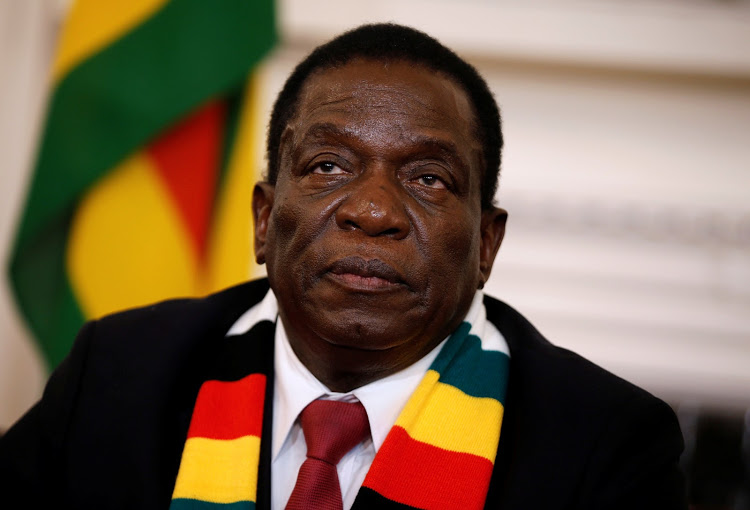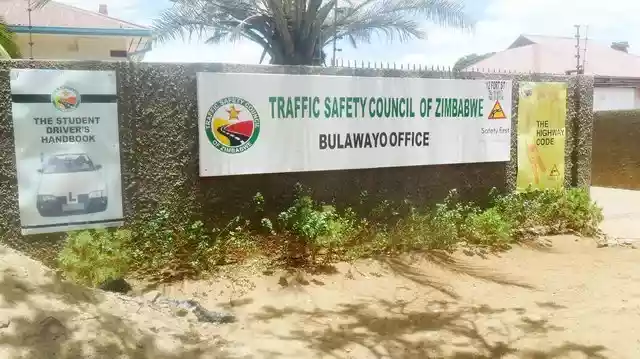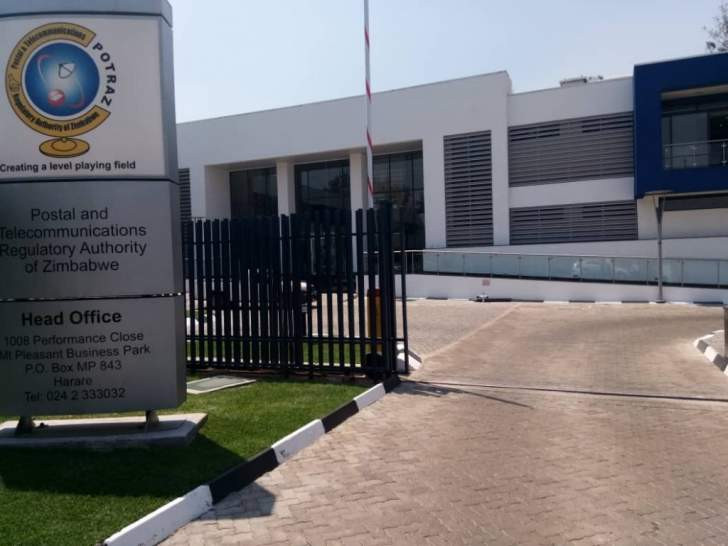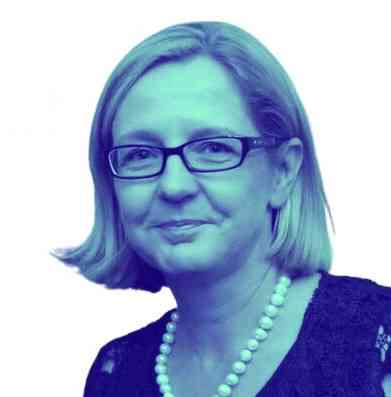
BY NQOBANI NDLOVU
AT his inauguration in November 2017, President Emmerson Mnangagwa pledged a “new destiny” for Zimbabwe, promising sweeping changes after the removal of the late president Robert Mugabe.
Zimbabwe was witnessing a “new and unfolding democracy” following Mugabe’s removal after 37 years in office, Mnangagwa declared at the time as he made a number of promises.
He promised to open up democratic space, fight corruption, improve the ease of doing business, re-engage the international community to end Zimbabwe’s isolation, uphold the rule of law and observe human and property rights.
Four years later, Zimbabwe is yet to witness the promised sweeping changes.
Instead, many of the reasons that energised the “Mugabe must go” protests remain in place a stark reminder that things have remained the same.
In fact, there is democratic regression, a report titled “PLUS ca CHANGE, 4 years after MUGABE: Progression or Regression: the Second Republic’s Governance Performance since November 2017” concludes.”
“Verdict: Plus ca Change In as much as the “Second Republic” or “New Dispensation” came promising wide ranging reforms of the country’s politics and governance mode, the evidence at hand point to more talk and less action,” the report read.
- Chamisa under fire over US$120K donation
- Mavhunga puts DeMbare into Chibuku quarterfinals
- Pension funds bet on Cabora Bassa oilfields
- Councils defy govt fire tender directive
Keep Reading
“In fact, there has been democratic regression and increasing reliance on crude authoritarianism in the exercise of public power. There has not been much difference between the first and second republics and, therefore, leading us to French writer, Jean-Baptiste Alphonse Karr famous quote: “The more things change, the more they remain the same”.
The report assesses the performance of various key governance indicators since Mnangagwa took over as President.
Corruption and poverty are widespread, business confidence is low, political and country risk is high, policy inconsistency remains an elephant in the room, judicial independence is questionable and there is no respect for property rights among others, the report showed.
In the post-1990 period, there have been several allegations of corruption in the areas of public procurement, land acquisition, housing for civil servants, public works, social welfare, mining, health and education.
At the level of policy, the government has taken steps to tackle corruption with very limited successes and headways.
The impact of corruption is remarkably substantial but there has been the lack of political will to fight graft under Mnangagwa where the country has witnessed grand corruption even in the face of the COVID-19 pandemic.
“Corruption levels in the public sector are still high. Prosecutions on corruption have often followed political lines. State institutions including Zimbabwe Anti-Corruption Commission (Zacc), courts and the police that should guard and protect the country against such activities, have all been embroiled in corruption scandals,” the report read.
In 2020, former Health minister Obadiah Moyo lost his job on allegations of corruption regarding a US$60 million deal to procure COVID-19 test kits and medical equipment. Moyo was fired and replaced by Vice-President Constantino Chiwenga, a former army commander, who now doubles as Health and Child Care minister.
There was also the Zupco bus procurement scandal involving Landela, a company linked to controversial businessman Kudakwashe Tagwireyi.
Landela was awarded the tender to supply 500 buses for mass public transportation from Xiamen Golden Dragon Bus Company in China. Each bus was to be sold to the government for US$212 962. The company was earmarked to make a profit exceeding 100%.
The unit price of the buses was US$58 900.
“The major challenge, however, is that these major infrastructural developments are opaque. No clear public information with regards to planning and budgeting, raising fears that prices are inflated. Often tenders are reported to be awarded to those linked to the ruling party or the President.”
Zimbabwe has experienced widespread corruption in virtually all sectors of the economy. Transparency International consistently ranks Zimbabwe among the most corrupt countries in the world.
The report adds that business confidence is low due to the country, currency and political risks with policy inconsistency not helping matters either.
“This means business regulation has not been reformed post-Mugabe era. Corruption, tough regulatory frameworks, policy inconsistency and weak institutions are major problems. The continued drop and fluctuation in confidence was caused by weighed down variables such as access to capital, political and country risk, as well as economic prospects and policy inconsistency.”
With regard to natural resource management, the report notes lack of transparency and accountability in the country’s resource management particularly in the extractive sector. Citizen participation in mineral resource management has remained limited resulting in unresolved conflicts between government, mining companies and communities.
Zanu PF is also seen as using the extractive sector to fund its political campaigns through dubious deals with suspect investors.
“The incumbent Zanu PF lures potential funders by promising to avail economic opportunities to partners to secure funding for their campaigns using mineral resources which the opposition often do not have access to.
“Zanu PF entered into a deal with Moti’s African chrome fields in 2018, with the South African businessman reported to have bought 150 double cab vehicles for Zanu PF’s 2018 election campaign in return for 300 hectares of chrome fields whose actual value was never disclosed to the public,” the report adds.
Mnangagwa has done little to end Mugabe’s patronage system. From the distribution of agricultural inputs to food handouts, those with close links to the ruling party and top government officials have been benefiting at the expense of deserving beneficiaries.
“These exclusionary programmes have lubricated, cascaded and consolidated a deep patronage and clientele infrastructure across key farming and rural constituencies and secured them for future use in ensuring electoral victory for the ruling Zanu PF party.
“Militarisation of State institutions and agencies from 2017 increased with some members of the army becoming Zanu PF politburo members, who went on to occupy various important positions in the public service, Judiciary and even taking over the oversight of police and intelligence functions and civilian operations.”
The State of judicial independence in Zimbabwe has also come under enormous public and international scrutiny under Mnangagwa.
Section 164 of the Constitution entrenches judicial independence and states that the courts are independent and subject to the Constitution and law.
“The independence and effectiveness of the courts are central to the rule of law and governance,” Section 164 (2), of the Constitution reads.
But the report concludes that the Judiciary has been captured.
The courts are skewed in favour of those who have connections to the ruling elite.
“Lawfare” is being used to silence opponents of the State without any regard to the rule of law and the Constitution.
National University of Science and Technology lecturer Mlungisi Moyo said to classify Mnangagwa’s four years as a failure was “mischievous.”
“It is an agenda pushed by people who do not want to see Zimbabwe succeed. I don’t know what barometer they are using but the President has done his level best. The report is based on an oppositional microspore and written by people not wanting to think broadly.”
Despite forcing through constitutional changes that give him broader powers over wevery institution in the country and cements his hold on power, Moyo claimed that Mnangagwa had “proved beyond doubt that he was a constitutionalist.”
“We were an isolated nation and yes it’s understandable that the myopic may not see the immediate fruits. But re-engagement is a very lengthy process. It cannot be an overnight process but we commend his efforts in that we are now not living in isolation. We can’t progress as an isolated nation. We need a network of all other nations,” he said.
“We need capital markets to come and lend us and we can only do that through re-engagement. His primary agenda is to make sure that we mend bridges and see how we can participate in the international arena. In terms of infrastructure, we are progressing from where we were and these are long-term projects.”
Political analyst and journalist Rashweat Mukundu says democracy has in fact regressed since the advent of the Second Republic.
“The assessment that there has been democratic regression is a correct analysis of Zimbabwe’s democratic credentials at this moment. The reason we say there is democratic regression is because of the complete capture and abuse of State institutions. The State institutions that should play a watchdog role and counter any attempts to usurp the powers of the Executive have all been subverted,” he said.
“We are talking of the Judiciary, we are talking of the security sector and we are also talking of other constitutional bodies like the Zimbabwe Anti-Corruption Commission and Zimbabwe Electoral Commisssion. These bodies are captured by the government and what we now have is an imperial presidency and not an authority or Executive that is accountable to Parliament or to any other body.
“We are in a far worse situation than we were under Mugabe in the sense that all the pretences at national infrastructural development are nothing when looked at in comparison to what we have lost which is a State that has institutions that are capable of acting independently in the interests of promoting and protecting the rights and interests of this country. So essentially, we now have a country in which the word of Mnangagwa is the law.”
He notes that there is no chance that Parliament or the Judiciary will go against the interests of Mnangagwa.
“That is the major regression we need to look at and when people have no capacity to question the leadership, to seek justice where the authority of the Executive is being challenged, when the police act on political instruction, when the military is an armed wing of the ruling party then the country cannot be, by an stretch of imagination, be called a democracy. It’s an authoritarian version at its worst.”
- This story was first published in the Weekly Digest, an AMH digital newspaper
- Follow Nqobani on Twitter@NqobaniNdlovu










